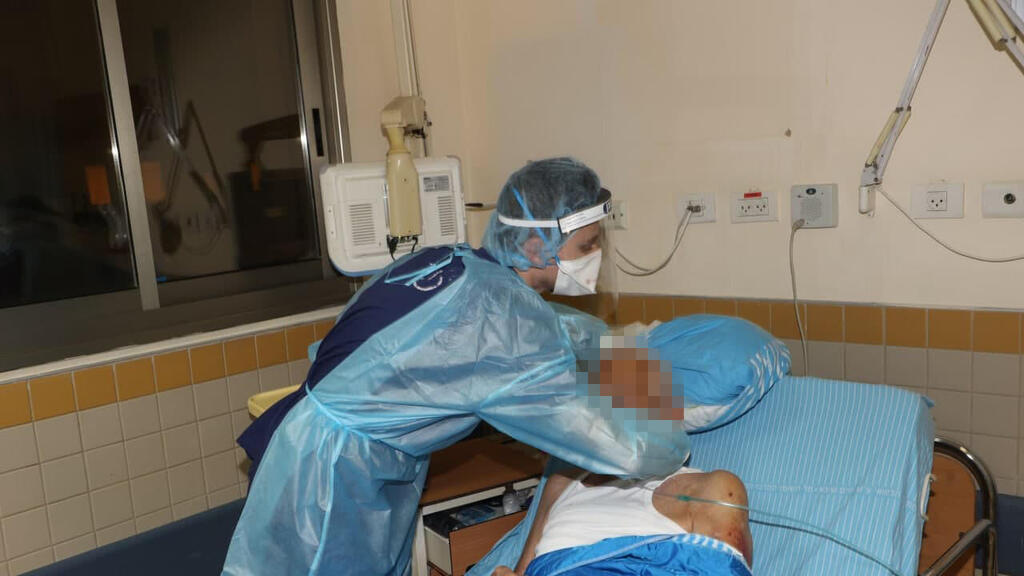Getting your Trinity Audio player ready...
A host of senior health experts on Monday slammed the government's plan to shorten the quarantine period for people exposed to coronavirus to just five days.
Israel already cut the quarantine period once, voting last week to shorten the isolation from 10 to seven days following pressure from some ministers. Health Minister Nitzan Horowitz instructed senior ministry officials to prepare for a further reduction in required quarantine days in order to prevent disruption of the education system and the economy.
Head of Infectious DiseaseUnit at the Sheba Medical Center Prof. Galia Rahav said five days were not long enough to prevent infection, citing studies that showed even seven days after exposure, the virus remains potent and can spread to others.
"Today, when the health system is already under pressure - at least one week of quarantine is needed, and only after a test returns negative - it should be lifted," she said.
"I would not like to be treated by a sick member of the medical staff who can infect me with COVID. I would like to see more data before a decision to cut down quarantine days is made," she said.
"I understand there is a manpower shortage because of infections but from a health perspective, it would be wise to wait ," she said.
Professor Doron Gazit from the Hebrew University, who is a member of the panel advising the government on the coronavirus pandemic, agrees.
"Thus far, Israel has taken what can be described as emergency measures, including lack of sufficient testing for the vaccinated population despite the understanding that Omicron is highly infectious for that population as well," he said.
"Today the Health Ministry demands one COVID test soon after exposure [to the virus] and if it returns negative, a quarantine is lifted. But we know that often infection appears 72 hours following the exposure. The policy is to limit quarantines, but the result is more infections and ultimately the damage to the economy remains the same," he said.
He added that reducing isolation to just five days, would increase infections by 30%.
"If any changes are made to quarantine days – they should be limited to frontline workers only with repeated, daily testing," he said.
However, an opposing argument was made by another member of the health panel advising the cabinet, Dr. Adi Niv-Yagoda - a public health expert - who said the five-day quarantine period was already adopted by the U.S. and Britain.
"Yes there is a certain amount of risk involved but considering the costs of quarantine days, it is a risk worth taking and exhibits a balance of needs," he said, adding that once a decision is made, it should apply to everyone so as not to cause confusion.




